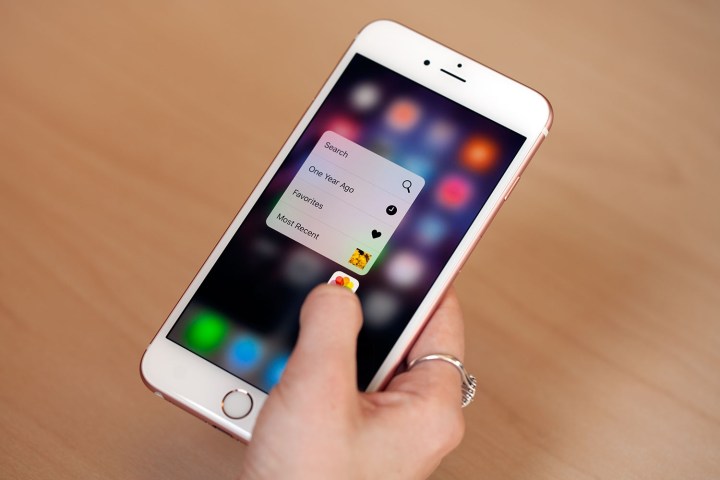
Worldwide growth has slowed to the single digits, and some projections suggest that the field may level, or even decline, by the end of this decade. The decline corresponds to a wave of consumer disinterest in new, cutting-edge handsets. Gadget geeks who once demanded the fastest phablet are now raving about the humble, more affordable iPhone SE.
Changes like this are new to smartphones, but we’ve seen them before. The same story played out about a decade ago in the PC world. The decline of the PC from prominence says a lot about the pain, and innovation, smartphones will soon see.
The iPhone’s dominance will fade
In the early to mid-80s, as computers started to transition from mainframes to obtainable home appliances, countless challengers appeared; Apple, Atari, Commodore, and Tandy, to name a few. All of these were popular at some point in the 80s, and all of them eventually fell in the face of the PC platform.
You might not like Android. But you’d better get used to it, because you’ll be using it a decade from now.
That happened because the PC, now generally understood to be a computer running Windows, is not monolithic. It’s various, flexible, capable of meeting a wide range of needs and performing many different functions. Companies that tried to keep everything in-house were outmaneuvered. It happened to Apple once; it will happen again.
Yes, it’s hard to imagine the iPhone falling from grace. Apple’s most financial report showed a downturn year-over-year, the company still sold almost 75 million smartphones. That’s more than all of the PCs sold across the globe in the first quarter of 2016.
But no company is an island. Apple’s rapidly growing line of smartphones and tablets is evidence of its struggle to be all things, to all people. In truth, it can’t be. It won’t be. As I argued in a debate over the iPhone SE, Apple is already slipping up. Its problems will multiply over time as it’s forced to choose between spreading itself thinner and thinner, or sacrificing customers to other companies building the devices Apple can’t.
Android and iOS will remain leaders, but Android is winning
That doesn’t mean the iPhone will tumble overnight. iOS devices will be important throughout at least the remainder of this decade. A platform as strong as iOS does not vanish overnight.
But Android is even more deeply entrenched. While it fights neck-and-neck with Apple in North America, it’s already taken over globally, with most studies finding it has around 80 percent of the market. That’s not quite on par with Window’s stranglehold on the PC, but it’s close, and it’s growing.
You might complain that Android will fall because it’s not very good. Many users are on outdated versions of it, security issues run rampant, and manufacturers still insist on re-skinning it with often hideous results. Using Android just isn’t as enjoyable as using iOS, even if the hardware is taken out of the equation.
Those are valid complaints, but they’re not going to stop Android’s dominance. Microsoft came to control the PC because it built an operating system that works for a huge range of devices, opening the floodgates for hardware and software – not because everyone loved Windows as a product. Android does the same. It will win because it gives Google’s partners the tools they need to build devices and software for just about anyone interested in a smartphone.
You might not like Android. But you’d better get used to it, because you’ll be using it a decade from now, no matter what phone you own right now.
The hardware will rapidly diverge
Smartphones have evolved quickly since their introduction, but have also followed a strangely uniform path. At first, they were small, built to easily fit in one hand. As their capabilities grew, so did screens, culminating in 2014 and 2015’s phablet craze. Now, with Apple’s iPhone’s SE, many are wondering if all the major flagships will trend downward again.
I don’t think so. The iPhone’s growing line-up is, as I said earlier, the company’s attempt to satisfy a customer base that’s increasingly diverse. Smartphones aren’t cool gadgets, like they were in 2007. And they’re starting to move away from the sleek status symbols they were a few years ago. They’re maturing into mundanity, becoming a functional device, a necessity of modern living. Yet necessity doesn’t mean everyone’s needs are the same.
If you already think the smartphone world is confusing, well, you’d best buckle up. There’s going to be a dizzying array of devices, with displays from four to six inches, with processors from dual to octo-core, with batteries large and small, with fingerprint readers, facial recognition cameras, add-on peripherals, and more.
And these won’t be side-shows, as so many phones outside the dominant trend currently are. There will be widely distributed flagships in every niche. Some people will buy nothing but 4-inchers. Other will prefer super-thin fashion phones. Others will flock to devices that are thick even by today’s standards. All of these, and more, will be successful.
Heaven, or a headache
Such changes seem a turn for the worse. As smartphones shift, the options will multiply, and become more complex. It won’t be enough to ask “what’s the best Android phone?” You’ll have to be much, much more specific.
Or not. As the PC market has proven, more choice doesn’t have to become unmanageable. Most people who buy a PC simply pick an affordable option with a 15-inch display, and call it a day. Soon, all but the most devout geeks will purchase smartphones with the same philosophy.
To mobile junkies, it sounds like an apocalypse. Actually, change means advancement. It’s good for technology to lose its novelty. Maturity isn’t synonymous with excitement — but it is synonymous with reliability, security, and capability.



